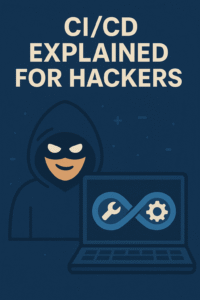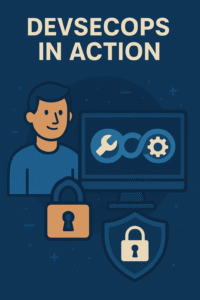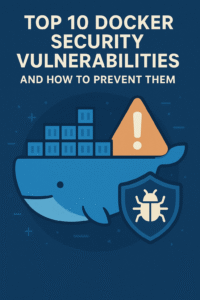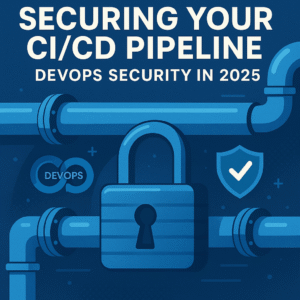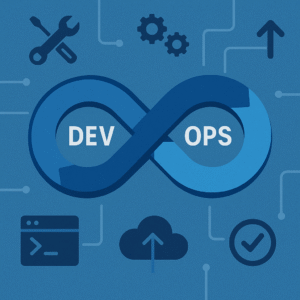Best Certifications for Information Security
Your Ultimate Guide to Cybersecurity Credentials in 2025
- Introduction
- Why Certifications Matter
- Criteria for Selecting Certifications
- Top 10 Certifications for Cybersecurity
- Cybersecurity Subfields and Certifications
- Career Impact and Salary Potential
- Cost and Preparation Strategies
- Tools and Learning Resources
- Use Cases and Scenarios
- Pros & Cons of Certifications
- How to Choose the Right Certification?
- Conclusion
Introduction to Best Certifications for Information Security
The **best certifications for information security** are critical in 2025, as cyberattacks cost organizations $4.5 trillion annually and 95% of enterprises rely on cloud systems. These cybersecurity certifications validate expertise across subfields like cloud security, penetration testing, and governance, empowering professionals to combat evolving threats. This guide explores the top 10 credentials that boost your career, covering selection criteria, subfield relevance, career impact, and practical steps to choose the right certification. With a global cybersecurity workforce gap of 4 million in 2024, certified experts are essential for protecting data and ensuring compliance. By the end of this 2500+ word guide, you’ll be ready to elevate your career. For context, see our cloud security trends guide.
Why does this matter? Certified professionals are in high demand to secure multi-cloud environments, meet regulations like GDPR, and build organizational trust.
Why Best Certifications for Information Security Matter in 2025
The **best certifications for information security** provide proof of expertise in high-stakes areas like zero-trust architectures, threat hunting, and compliance. In 2025, 75% of cybersecurity job postings require credentials like CISSP or CEH, according to a 2024 survey. These certifications demonstrate hands-on skills, such as securing AWS S3 buckets or conducting penetration tests, critical in dynamic threat landscapes.
Certifications boost earning potential by 25%, with salaries averaging $140,000–$180,000 in the U.S. (2024 data). For example, CCSP is vital for cloud security roles, while CISM suits governance-focused positions. They also keep you updated on trends like AI-driven threat detection and adversarial thinking, ensuring competitiveness. Explore foundational concepts in our cybersecurity basics guide.
Criteria for Selecting Cybersecurity Certifications
Choosing the **best certifications for information security** involves evaluating:
- Relevance: Does the certification address 2025 trends, like multi-cloud security or ransomware defense? CCSP and CEH are highly relevant.
- Industry Recognition: Credentials from ISC², EC-Council, or ISACA are globally respected.
- Skill Level: Entry-level certifications like CompTIA Security+ suit beginners, while CISSP requires 5+ years of experience.
- Cost and Time: Exams range from $150 to $760, with prep times of 1–8 months.
- Career Goals: Cloud security analysts prioritize CCSP; pentesters focus on CEH or OSCP.
These criteria ensure you invest in certifications with maximum ROI. See our cybersecurity career guide for career planning.
Top 10 Best Certifications for Information Security
Here are the top 10 **best certifications for information security** in 2025, selected for demand, relevance, and career impact:
- Certified Information Systems Security Professional (CISSP): Covers eight domains, including cloud security and risk management. Ideal for senior roles. Cost: $749; Prep: 4–8 months.
- Certified Cloud Security Professional (CCSP): Focuses on securing AWS, Azure, and GCP environments. Critical for multi-cloud roles. Cost: $599; Prep: 3–5 months.
- Certified Ethical Hacker (CEH): Teaches penetration testing and vulnerability assessment, perfect for offensive security. Cost: $550; Prep: 2–4 months.
- Offensive Security Certified Professional (OSCP): A hands-on pentesting certification with a 24-hour lab exam. Highly respected. Cost: $1,499; Prep: 4–6 months.
- Certified Information Security Manager (CISM): Focuses on governance, risk management, and compliance. Suits leadership roles. Cost: $760; Prep: 4–6 months.
- CompTIA Security+: An entry-level certification covering cloud security, networking, and threats. Ideal for beginners. Cost: $392; Prep: 1–3 months.
- Certified Information Systems Auditor (CISA): Emphasizes auditing and compliance, vital for regulatory roles. Cost: $760; Prep: 3–5 months.
- GIAC Security Essentials (GSEC): Covers practical security skills, bridging technical and managerial roles. Cost: $2,499; Prep: 2–4 months.
- AWS Certified Security – Specialty: Validates expertise in securing AWS environments, including IAM and encryption. Cost: $300; Prep: 2–4 months.
- Certified in Risk and Information Systems Control (CRISC): Focuses on risk assessment and IT controls, ideal for governance. Cost: $760; Prep: 3–5 months.
These certifications span subfields like cloud security, pentesting, and governance, with 70% of 2024 cybersecurity job listings requiring at least one.
Cybersecurity Subfields and Best Certifications for Information Security
Cybersecurity is diverse, with certifications tailored to key subfields:
- Cloud Security: CCSP and AWS Certified Security address multi-cloud encryption, IAM, and zero-trust. In 2025, 90% of breaches involve cloud misconfigurations, making these critical.
- Penetration Testing: CEH and OSCP teach offensive techniques, like exploiting Kubernetes vulnerabilities. Pentesters saw 50% job growth in 2024.
- Governance and Compliance: CISM, CISA, and CRISC focus on risk management, auditing, and frameworks like GDPR and NIST, essential for finance and healthcare.
- Network Security: CompTIA Security+ and GSEC cover firewalls, VPNs, and intrusion detection, foundational for all roles.
- DevSecOps: CEH and AWS Security integrate security into CI/CD pipelines, aligning with 2025’s DevSecOps trend.
For example, a 2024 healthcare breach due to weak cloud IAM cost $500,000; a CCSP-certified professional prevented a similar incident. Explore more in our cloud security basics guide.
Career Impact and Salary Potential
The **best certifications for information security** significantly enhance career prospects. A 2024 study found certified professionals are 60% more likely to land roles like Cloud Security Architect or CISO. Salary ranges in the U.S. (2024 data):
- CISSP: $140,000–$180,000
- CCSP: $130,000–$165,000
- OSCP: $120,000–$160,000
- CompTIA Security+: $80,000–$110,000
- CISM: $135,000–$175,000
Global opportunities are growing, with remote cybersecurity roles up 35% in 2024. A 2023 CCSP-certified analyst secured a $150,000 remote role at a fintech firm, showcasing the impact of these credentials. See our cybersecurity career path guide.
Cost and Preparation Strategies
Cybersecurity certifications vary in cost and effort:
- Low-Cost Options: CompTIA Security+ ($392) and CEH ($550) require 1–4 months of study.
- High-Cost Options: OSCP ($1,499) and GSEC ($2,499) demand 4–6 months due to hands-on labs.
- Preparation Tips: Use Pluralsight ($299/year), Cybrary (free–$499), or Udemy ($20–$150) for courses. Practice with labs like TryHackMe ($10/month) for CEH or AWS Skill Builder (free) for AWS Security. Join Reddit’s r/cybersecurity for peer support.
In 2025, AI-driven tools like Cybrary’s adaptive learning cut prep time by 25%. For example, an OSCP candidate used Hack The Box labs ($100) to pass in 4 months. Free resources include CompTIA webinars and AWS whitepapers.
Tools and Learning Resources for Cybersecurity
Key tools for certification preparation:
- Cloud Platforms: AWS Free Tier and Azure Free Account for cloud security labs.
- Pentesting Tools: Burp Suite, Metasploit, and Kali Linux for CEH and OSCP labs.
- Security Tools: NIST CSF for CISM, Wireshark for Security+ and GSEC network analysis.
- Learning Platforms: Cybrary (CISSP, CEH), Pluralsight (CCSP), and TryHackMe (pentesting).
- Books: “CISSP All-in-One Exam Guide” ($50) and “CEH Certified Ethical Hacker Study Guide” ($40) are top picks.
A 2024 survey found 85% of certified professionals used hands-on labs. For instance, TryHackMe’s free pentesting labs helped a CEH candidate pass in 3 months.
Use Cases and Scenarios
The **best certifications for information security** apply to diverse roles:
- Cloud Security Analyst (Finance): Used CCSP to secure AWS S3 buckets, ensuring PCI DSS compliance and saving $200,000 in fines.
- Pentester (Tech): Leveraged OSCP to identify Kubernetes vulnerabilities, reducing breach risks by 50%.
- Compliance Manager (Healthcare): Applied CISM to achieve SOC 2 certification, meeting HIPAA requirements.
- Entry-Level IT (Retail): Used CompTIA Security+ to secure cloud-based POS systems, ensuring GDPR compliance.
Real-world example: In 2024, a CISM-certified manager streamlined GDPR audits for a bank, cutting compliance costs by 30%. Explore more in our healthcare security guide.
Pros & Cons of Cybersecurity Certifications
| Feature | Entry-Level (e.g., Security+) | Advanced (e.g., CISSP, OSCP) |
|---|---|---|
| Job Relevance | High for junior roles | High for senior roles |
| Cost | $150–$392, affordable | $550–$2,499, expensive |
| Prep Time | 1–3 months, quick | 4–8 months, intensive |
| Skill Scope | Foundational, broad | Specialized, deep |
| Renewal | 3 years, simple | 3–5 years, complex |
How to Choose the Best Certifications for Information Security in 2025
Selecting the **best certifications for information security** involves these steps:
- Identify Your Subfield: Cloud security (CCSP), pentesting (OSCP), or governance (CISM).
- Assess Experience: Beginners start with CompTIA Security+; experts target CISSP (5+ years).
- Check Cloud Usage: AWS Security for AWS-heavy roles; CCSP for multi-cloud environments.
- Plan Your Budget: Allocate $150–$2,499 for exams and $20–$500 for materials. Use free resources like AWS Skill Builder.
- Stay Future-Ready: AI-driven security and DevSecOps are 2025 trends; prioritize CCSP and CEH.
Practical example: A 2024 analyst earned CCSP and AWS Security for $450 total (using free AWS labs and Udemy), landing a $140,000 role. Plan your career with our AI cybersecurity trends guide.
Conclusion: The Future of Cybersecurity Certifications
In 2025, the **best certifications for information security** are vital for career success, offering expertise in cloud security, pentesting, and governance. Credentials like CISSP, CCSP, and OSCP position you to combat cyber threats, ensure compliance with standards like GDPR, and advance to leadership roles. With cyberattacks escalating and a 4-million workforce gap, certified professionals are in high demand. Start your certification journey now to secure your career in a threat-driven world.









